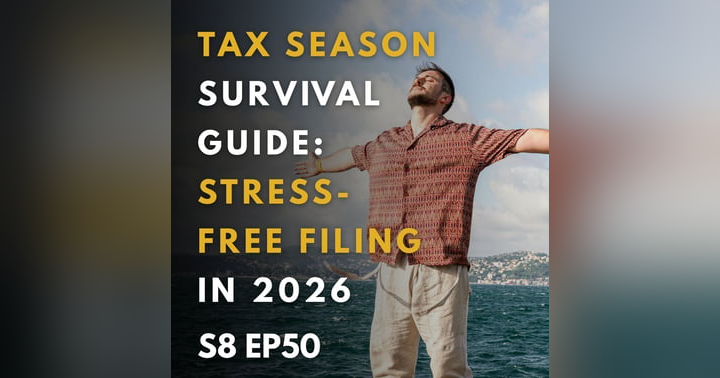Are Hidden Talents Your Unused Wealth?

Introduction: Beyond the Bank Account – A Holistic Look at Christian Stewardship
For many Christians, “stewardship” often means managing money—budgeting, tithing, saving, and avoiding debt. This financial discipline is admirable and biblically grounded. True confidence with money comes from aligning financial choices with God’s guidance. But stewardship goes beyond just finances—it includes how we manage our time, energy, and abilities. Are hidden talents your unused wealth?
Whole-Life Stewardship: Honoring God with Time, Talent, and Treasure
Beyond Finances
Stewardship isn’t just about money. True biblical stewardship includes everything God has entrusted to us—our time, abilities, and resources. If we’re careful with finances, shouldn’t we be just as intentional with how we use our days and gifts?
God Owns It All
Psalm 24:1 reminds us, “The earth is the Lord’s, and everything in it.” We’re not owners, but managers. This mindset invites us to ask, “How can I honor God with what He’s given me?”
Stewardship of Money
Money reveals priorities and trust. Scripture teaches us to:
Give Generously – Giving is worship, not duty.
Resist Greed – “You cannot serve both God and money” (Matt. 6:24).
Be Content – Joy comes from God, not things.
Plan Wisely – Save, avoid debt (Prov. 21:20), and prepare to serve.
Invest Eternally – Store treasure in heaven (Matt. 6:19–21).
Stewardship of Time
Time is sacred and limited. Ephesians 5:16 urges us to “make the best use of the time.”
Prioritize God’s mission
Eliminate distractions
Rest regularly (Sabbath is obedience, not laziness)
Say no when needed
Stewardship of Talents
God gives each of us gifts to glorify Him and serve others (Matt. 25:14–30).
Discover through prayer and service
Develop with learning and practice
Deploy in church, home, and workplace
Integrated Stewardship
These areas are connected. Money provides margin, time develops gifts, and talents create impact. Focusing on one while ignoring others causes imbalance.
Avoid the Pitfalls
Don’t bury your gifts, hoard wealth, or live as if it’s all yours. Stewardship starts with surrender.
Next Steps
Reflect, pray, plan, stay accountable—and be faithful. Stewardship is less about giving more, and more about offering all.
To aid in this process of self-assessment and intentional growth, the following checklist can be a valuable tool:
Holistic Stewardship Self-Assessment Checklist
Area of Stewardship | Reflection Question | My Current Practice (Yes/No/Needs Growth) | Area for Growth / Next Steps |
Overall | Do I see my time, talents, money, and relationships as God’s, with me as His faithful steward? |
|
|
| Is my stewardship driven by gratitude and humility, not pride or a sense of ownership? |
|
|
| Do I seek God’s wisdom through prayer in all my stewardship decisions? |
|
|
Time | Am I using time wisely, redeeming each moment, knowing it's brief and meant for God’s purposes? |
|
|
| Do I prioritize God’s kingdom and align my tasks with His values, seeking Him first? 18 |
|
|
| Do I intentionally avoid distractions and multitasking to focus on what truly matters? 18 |
|
|
| Do I practice Sabbath rest and manage stress to honor God with my body and mind? 18 |
|
|
| Am I investing time in relationships and serving others as part of faithful stewardship? 5 |
|
|
Talent | Have I identified and embraced my God-given natural and spiritual gifts? 24 |
|
|
| Am I developing my talents through practice, learning, and seeking godly mentorship? 23 |
|
|
| Am I using my talents to serve others and build God’s Kingdom, not for gain or recognition? 20 |
|
|
| Am I overcoming fear or laziness that might prevent me from fully investing my talents? 4 |
|
|
Treasure | Is my giving a joyful act of gratitude and obedience, done cheerfully and with intention? 7 |
|
|
| Am I living within my means, avoiding debt, and creating margin for generosity and needs? 8 |
|
|
| Am I guarding my heart from greed and making sure money never becomes an idol in my life? 7 |
|
|
| Am I content with what I have, trusting God’s provision instead of always seeking more? 8 |
|
|
| Am I investing in eternal treasures by supporting God’s work and caring for the poor? 8 |
|
|
Conclusion: Living a Life of Faithful Stewardship
Christian stewardship is a lifelong journey of faithfully managing all that God has entrusted to us—time, talent, and treasure—for His glory and the advancement of His Kingdom. It goes beyond finances, calling us to a holistic commitment that brings deep joy, spiritual growth, and lasting purpose. True stewardship leads to deeper intimacy with God, greater responsibility in His work, and a legacy that extends beyond material wealth. Success is redefined—not by accumulation, but by faithfulness and eternal impact. As believers align every area of life with God’s purposes, they experience the freedom and confidence that comes from trusting in His provision and participating in His redemptive plan. The invitation remains: to make stewardship a way of life and offer all we are—just as Mary said “yes” to God—with the assurance that in giving ourselves fully, we gain everything of eternal value.












